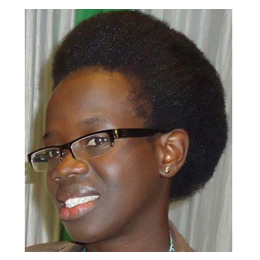One Young World Ambassador Maureen Agena on Uganda’s controversial Public Order Management Bill and planned regulation of social networks.
Since 2011, Uganda has been the scene of protests against corruption, poor health care, education, unemployment and alleged nepotism in the current ruling National Resistance Movement (NRM) Government. As a result, opposition parties and civic groups have since 2011 planned rallies that have been actively blocked by the police under what they call the "preventive arrest" of protest leaders. Several activist groups have however continued to demonstrate in the capital Kampala and have often been faced with obstacles including beatings, harassment, arrests, use of live ammunition and tear gas canisters among others.
Tuesday 6th August saw the passing of a very contentious bill by the Ugandan 9th Parliament, the Public Order Management Bill. The bill was passed despite criticism from opposition members of Parliament, religious leaders, activists, human rights groups and some members of the public.
According to clause 8 of the bill, police have discretionary powers to reject or grant permission to a gathering, including the use of force to break up gatherings held without prior authorization. This clearly infringes on civil liberties and the sanctity of the constitution which guarantees these rights.
The Public Order Bill was initially proposed and tabled in 2009 and just like today, it sought to regulate public gatherings and empower the inspector general of police to regulate the conduct of meetings. Despite the heated debate in and outside Parliament it was finally passed on Tuesday. Prior to its passing, one of the young opposition lawmakers Hon. Odongo Otto, in an apparent bid to delay voting on the bill, tore up a roster of lawmakers who were for the bill as the deputy speaker Hon. Jacob Olanyah looked on. For many, this was an act of courage and he was praised for representing and fighting for the rights of the people he serves.
As a youth activist, together with other young people in Uganda, I have on several occasions organized tweetups (physical meetings of people who tweet) at public coffee shops to discuss some of the issues affecting our country and what role we can play. These issues range from politics to governance, fundraising and youth unemployment. With the passing of this bill, we might never be able to discuss issues that affect us directly as young people. Many have resorted to using the Internet to share, question, engage, blog and tweet their thoughts because they are afraid of what may befall them should they take to the streets after the passing of the bill. These virtual meetings are also under threat as the government’s communications regulator is planning to monitor and regulate the use of social networking sites like Facebook and Twitter.
This poses a threat to Uganda, a country with the youngest population in the world and the highest rate of youth unemployment in sub-Saharan Africa. It is thus extremely important that youth activists seek to promote responsible and effective youth leadership to build positive attitudes towards education, knowledge sharing and entrepreneurship, human rights and tolerance Uganda, to contribute towards lowering the number of youth involved in criminal activity and increasing youth resilience in the face of violence and poverty. Such a bill only hinders our progress.
Uganda’s President Museveni, took over power undemocratically in 1986, when many of the current youth population were not yet born. (Museveni was later elected in 1996). While Museveni may be a villain for many Ugandans today, he is still praised as a hero by the older generation in Uganda for ushering in peace in 1986 after the said tyrannical rules of former presidents Idi Amin Dada and Milton Obote. I cannot ignore the fact that there are mixed reactions towards the bill because the real cause of this action is to manage public order in the country. Many of the critics do not say much about that. There are many ‘non-players’ in these gatherings including school children, business people and youth who are constantly victims of uncouth police action. The manner in which the bill was passed and the fact that so much power is given to the police to regulate the conduct of meetings is bizarre. Perhaps what Uganda needs is proper dialogue and not imposed bills that infringe on the rights of her citizens.
The cause(s) of these political riots, demonstrations and gatherings must be addressed by the Ugandan Government if positive change is to be achieved and the youth must be at the forefront of these dialogues.
Follow what Ugandans on Twitter are writing about the bill using the hashtag #POMB
